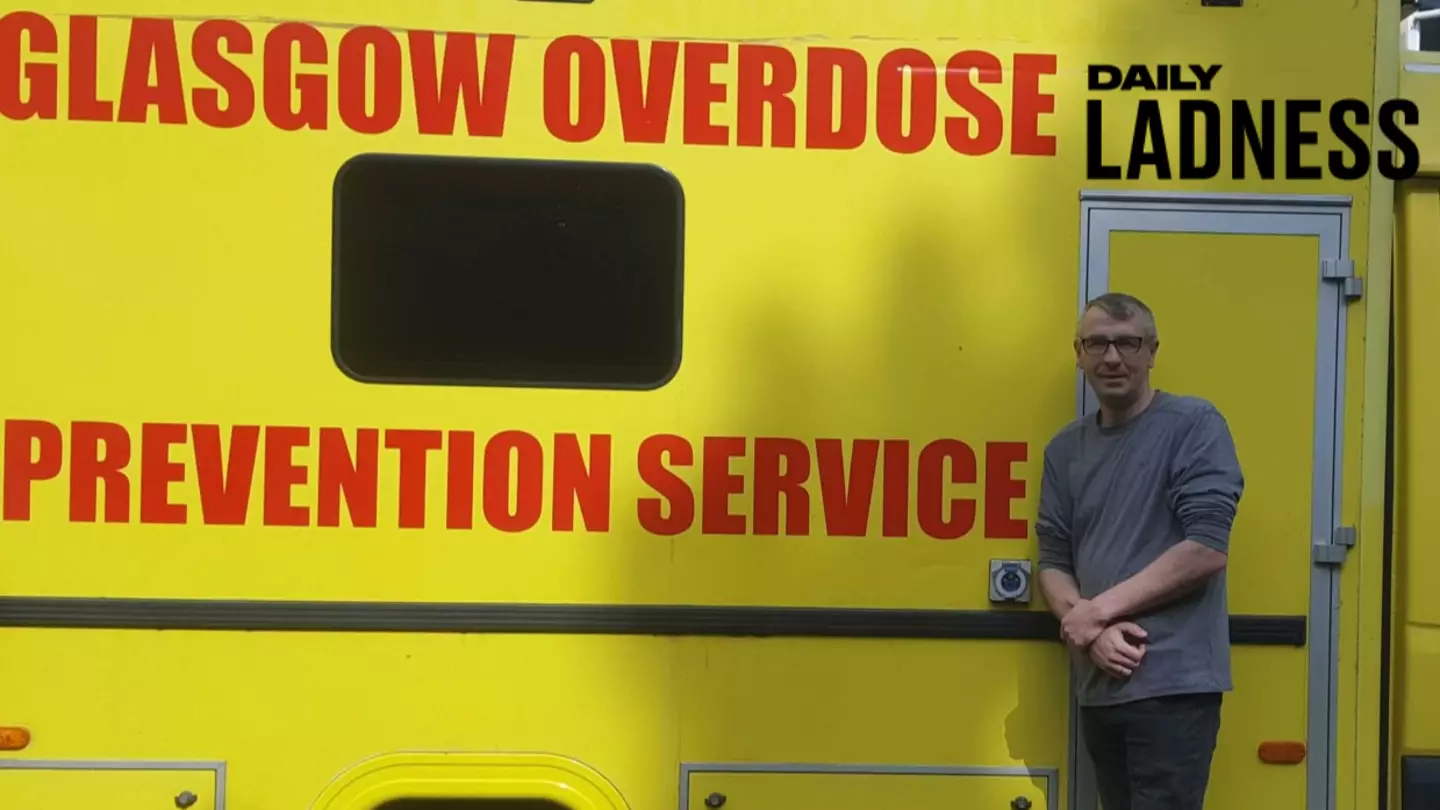
Peter Krykant began experimenting with drugs when he was just 11 years old, first smoking cannabis, before moving onto ecstasy and then heroin by the time he was 17.
As his addiction took hold, Peter's life spiralled out of control, resulting in him becoming homeless and sleeping rough.
Eventually, he managed to kick his habit, getting himself a job and meeting his wife.
But after seeing the damage drugs had done not only to his life but to those around him in Scotland, where over 1,300 people died from drugs misuse in 2020 - the highest in Europe, he decided to do something about it.
Advert
In August 2020, he turned an old van, and then later a disused ambulance, into a mobile drug consumption unit, which was a safer place for the homeless in Glasgow to get their hit, away from the rat-infested alleyways and shop doors they often frequented.
Speaking to LADbible, the 45-year-old says: "The ambulance was a fairly symbolic vehicle, you know, because it was a vehicle that I could say was a health response to a health issue.
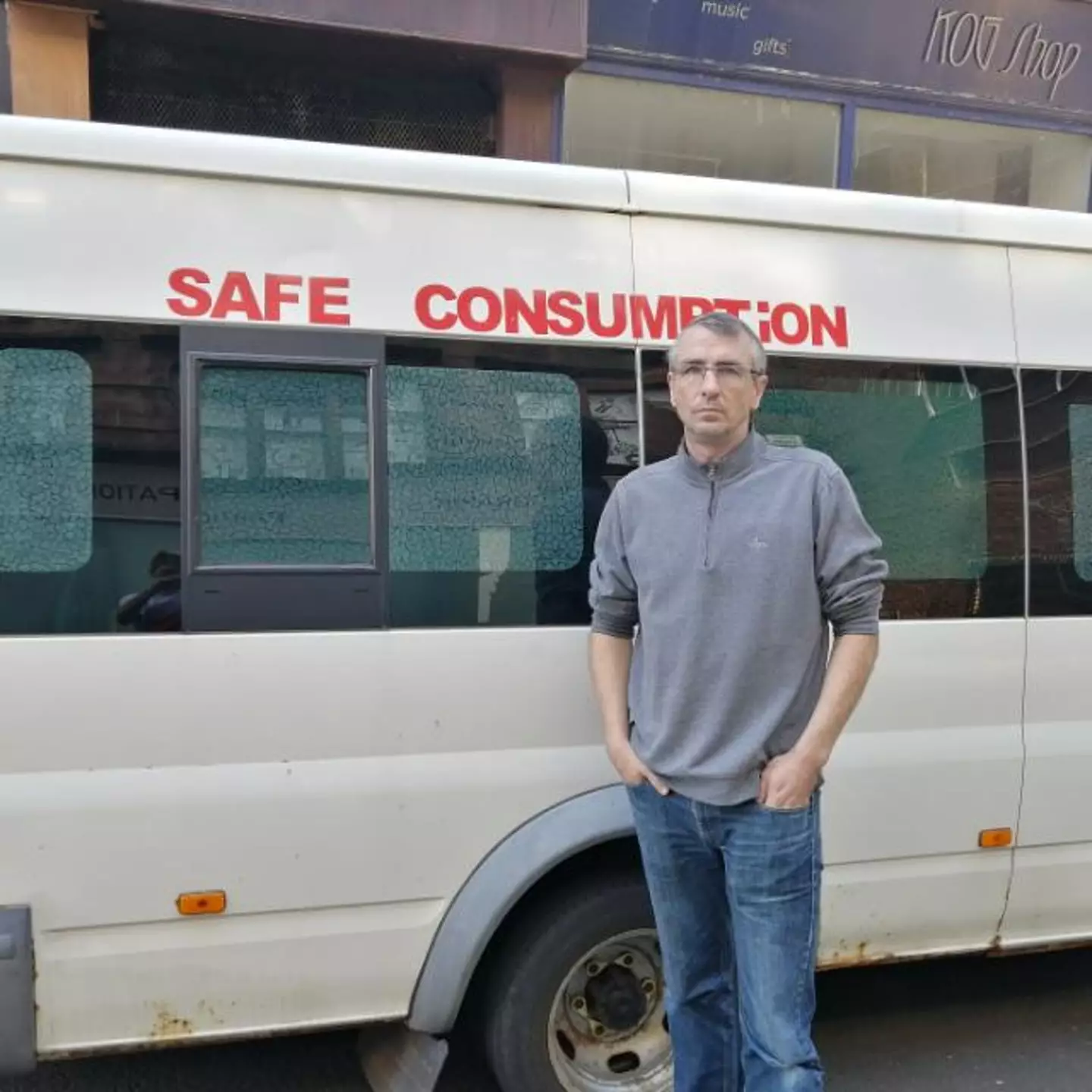
"And it is a health issue, when people are publicly injecting drugs in alleyways, you know, that that needs a health response to support safer drug use to support less infections, - HIV, hepatitis C transmissions, to keep people alive in the event of an overdose, etc."
As well supervising their drug use, Peter also gave out food, drink and new clothes.
"I believe that people who are some of the most marginalised people in society - rough sleepers out injecting drugs in dirty, filthy conditions - are entitled to a new pair of socks rather than a second pair of socks," he says.
With his connections in the homeless community, people trusted Peter, and after a few weeks of driving around the city centre, dozens of people were coming to him each day.
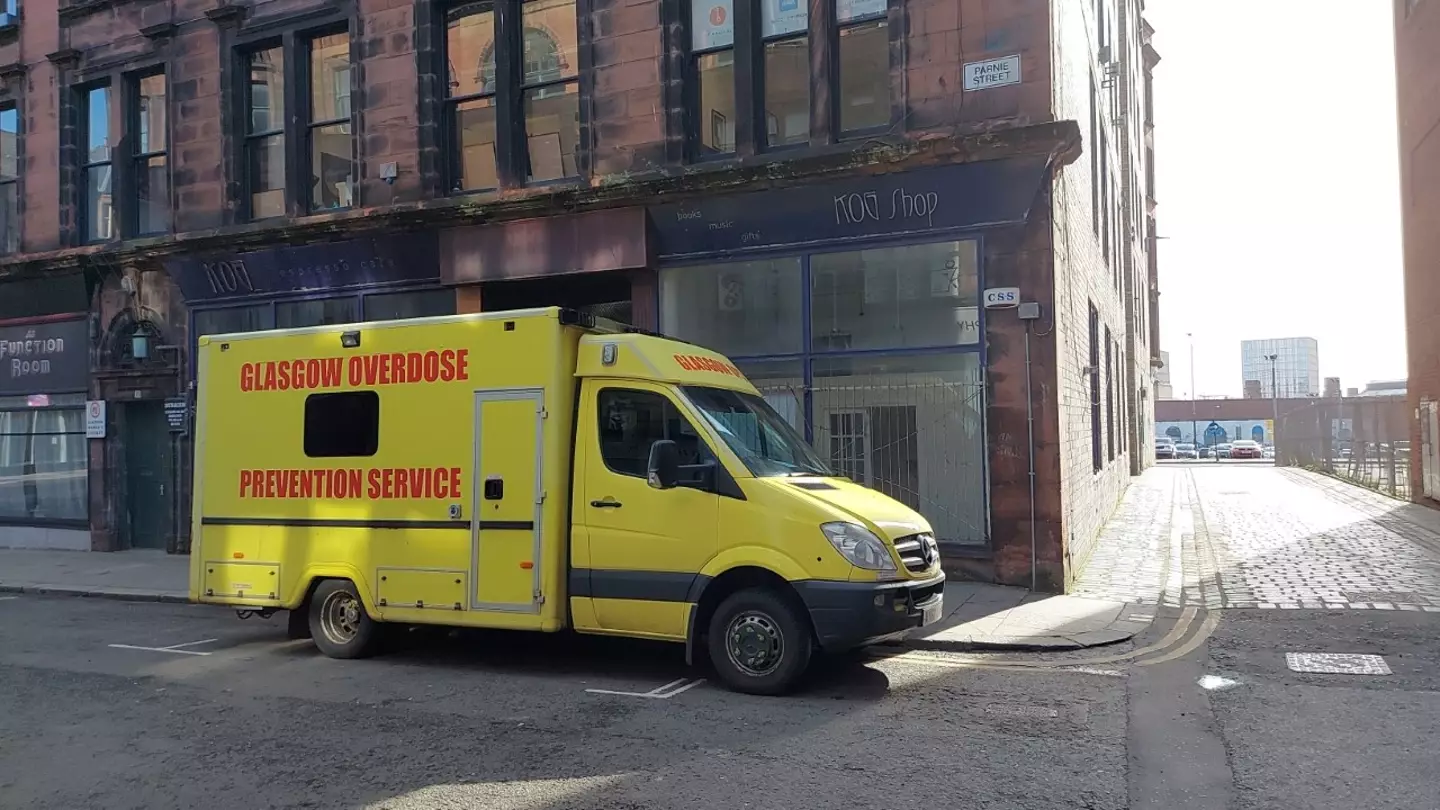
In the 10 months that the service was running, Peter supervised almost 900 injections and saved nine people from overdosing.
Peter says: "If people are using drugs on their own, the chances are they will die.
"We dealt with a number of overdoses, we administered naloxone on a number of occasions.
"It's par for the course. When I was still an injecting drug user, I experienced multiple overdoses.
"There's never been millions of visits to supervised consumption facilities across the world... and we've yet to have a recorded fatality.
"And thankfully, Glasgow didn't experience the first."
He adds: "It was always going to be a concern, of course - we weren't a sanctioned site, we didn't carry oxygen, etc.
"But one of the volunteers, who was a regular volunteer, was an ex-nurse, so we did have some sort of medically qualified staff on site."
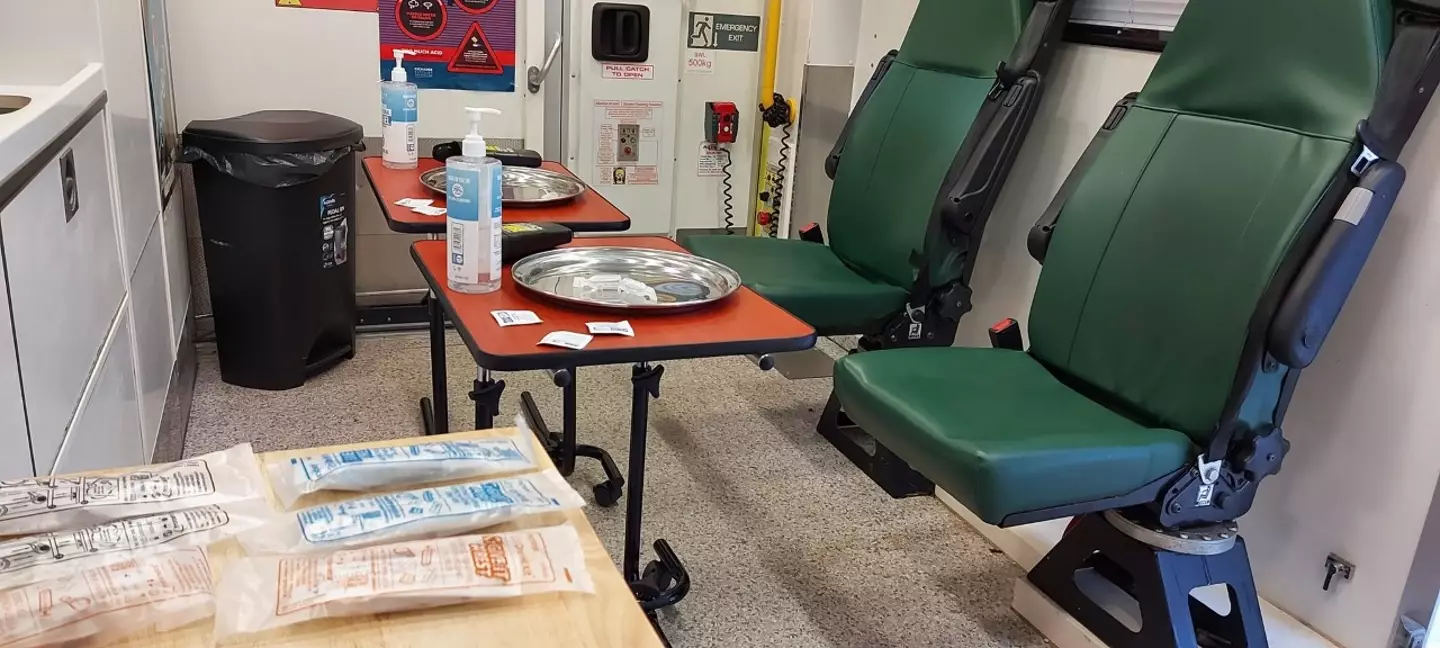
Unfortunately for Peter, the service massively impacted his personal life, with him losing his job due to an alleged 'conflict of interest' and then having to fund much of the service himself, racking up over £10,000 ($13,600) of debt.
He recalls: "I went from bringing in £1,100 pounds a month to nothing, living outside my means every month because I still had a car to pay for and bill, etc. with one salary coming into a house."
The financial strain meant that he had to put an end to the service last year and go back to full time employment.
But Peter, who now works as a Project Lead for charity Cranstoun and was recently accepted onto a post-grad course in substance use at Glasgow University, says he is proud of what he achieved.
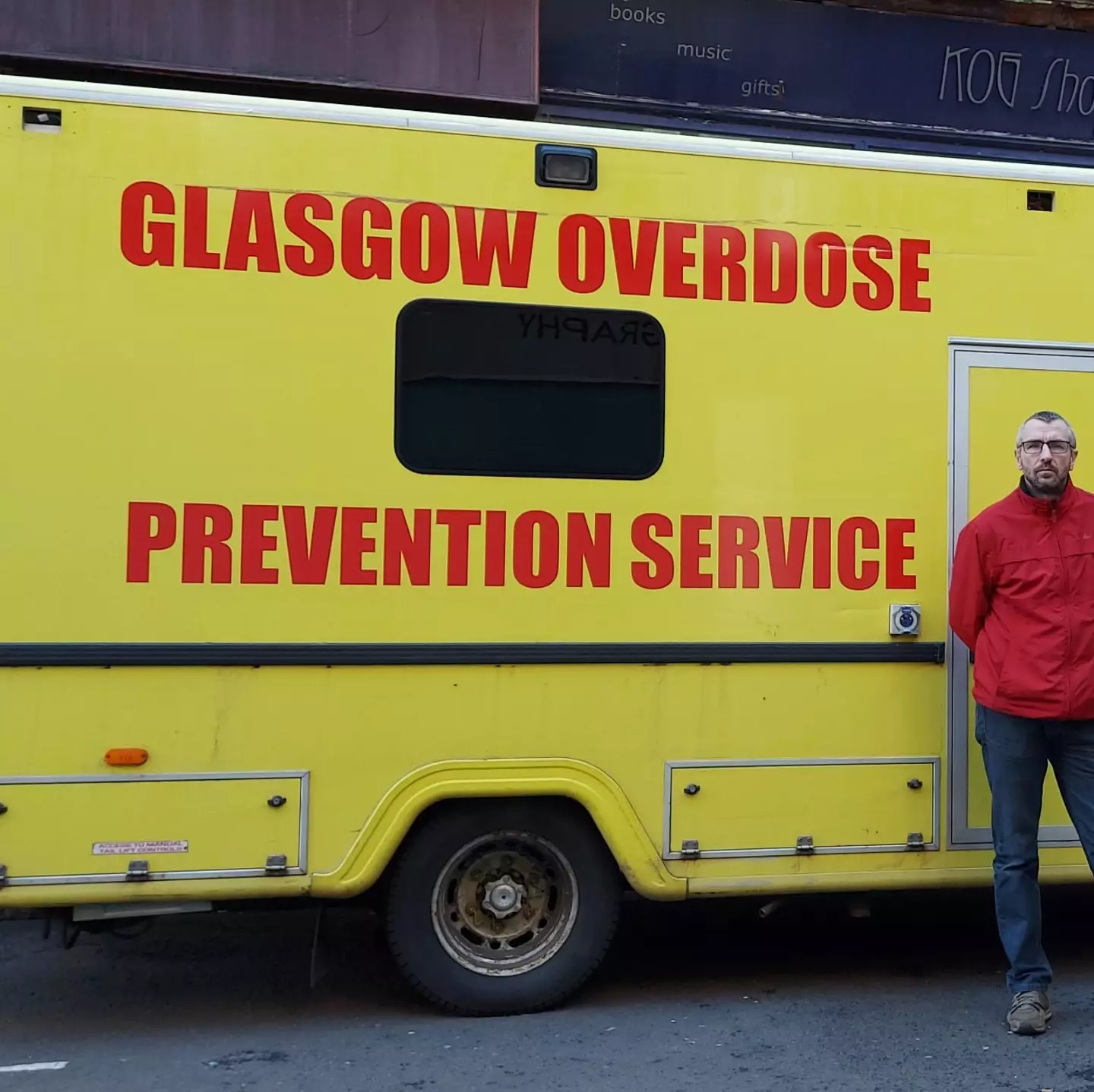
He says: "It had to be done. Someone had to break the constitutional wrangling over it.
"The mantra was 'we can't do this' because of the 1971 Misuse of Drugs Act. But since I've proved that there's nothing illegal about it, the Scottish Government has completely changed its tune."
In 2020, Peter was charged under the under the Misuse of Drugs Act 1971 after police attended the drugs consumption van.
The charges were later dropped after his lawyer argued there was no public interest in prosecuting Peter when he was trying to save lives.
Peter continues: "So yeah, I've done something that's changed the course of direction in Scotland and I've achieved a recognition for the value of harm reduction as a standalone treatment option.
"Our systems have been balanced towards abstinence and a drug free utopia."
He is now confident that Scotland will see its first fixed drug consumption site in the next year.
He says: "Glasgow will see a fixed site model this year. After recent announcements... I just cannot see how it won't be progressed."
Topics: Health, Politics, No Article Matching